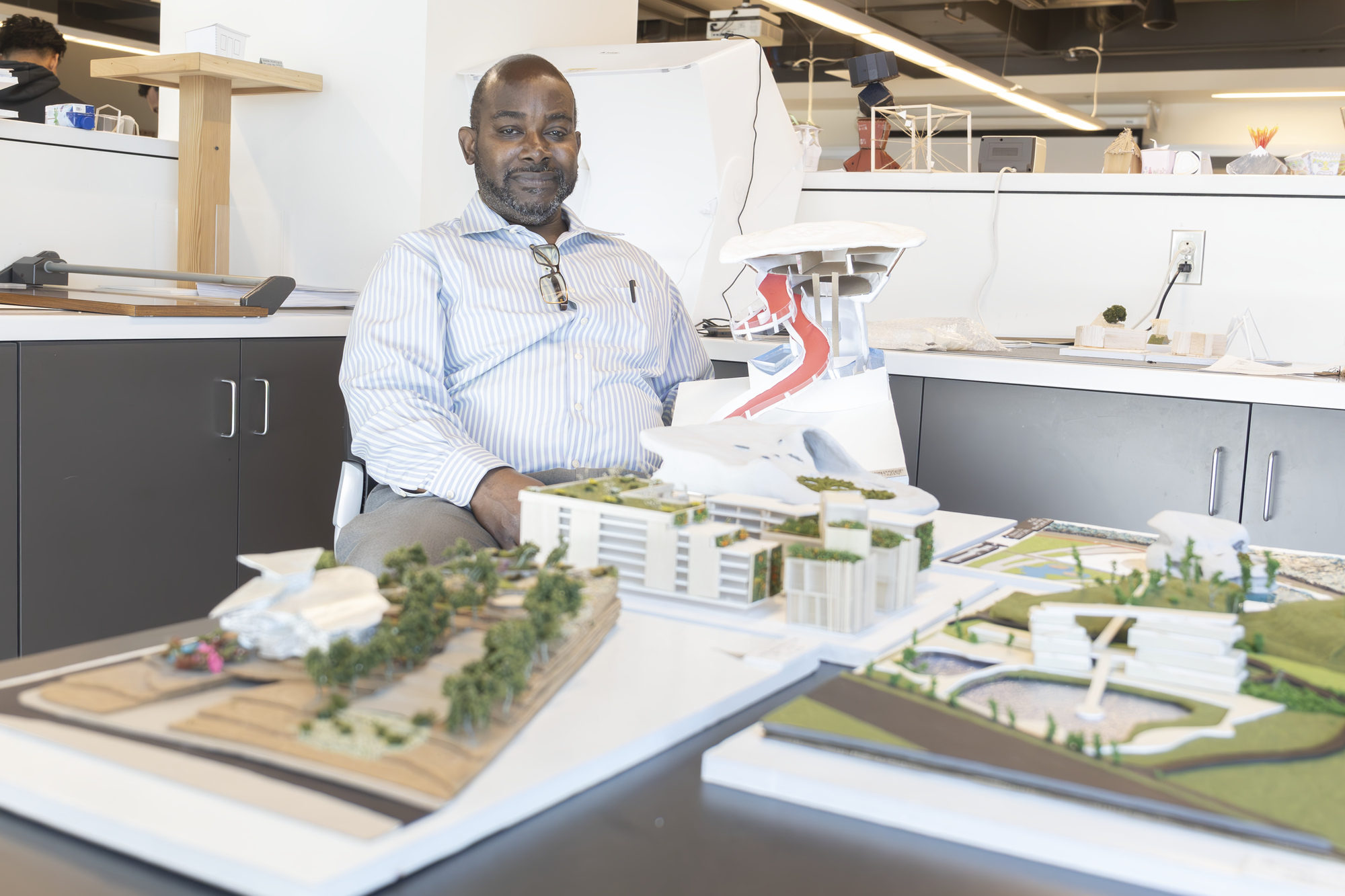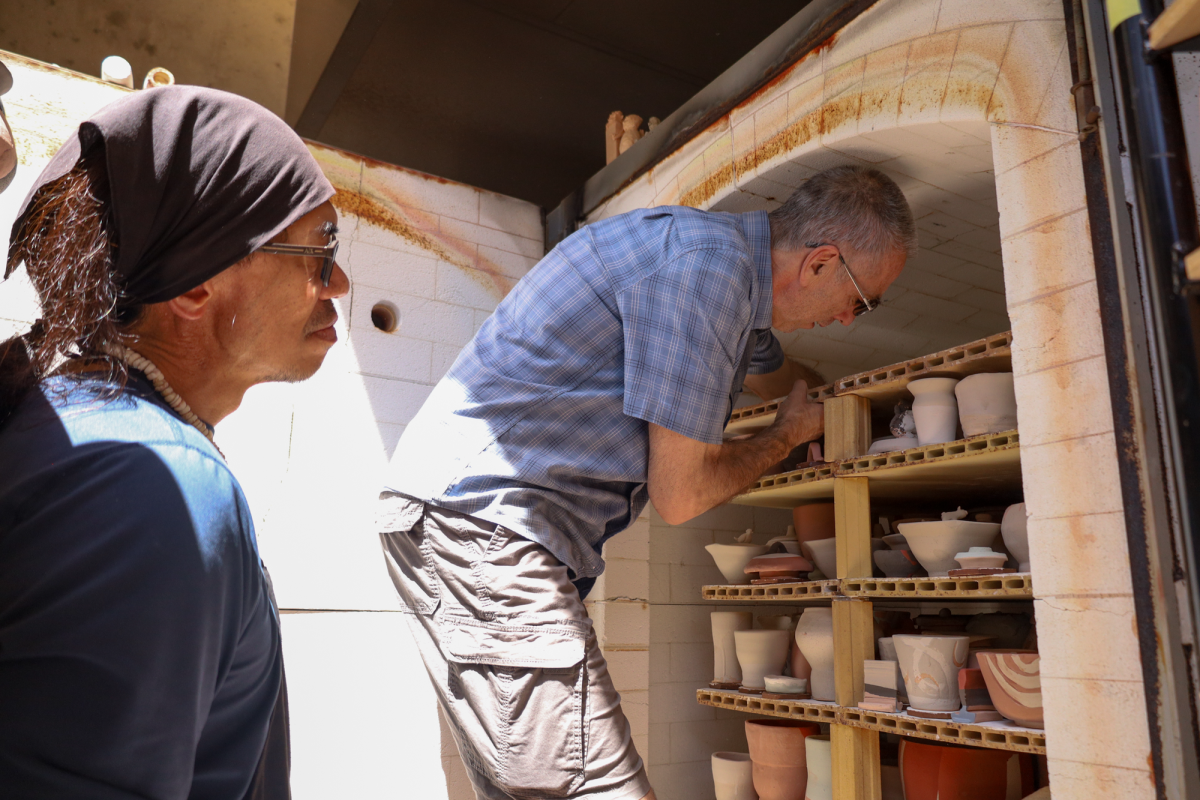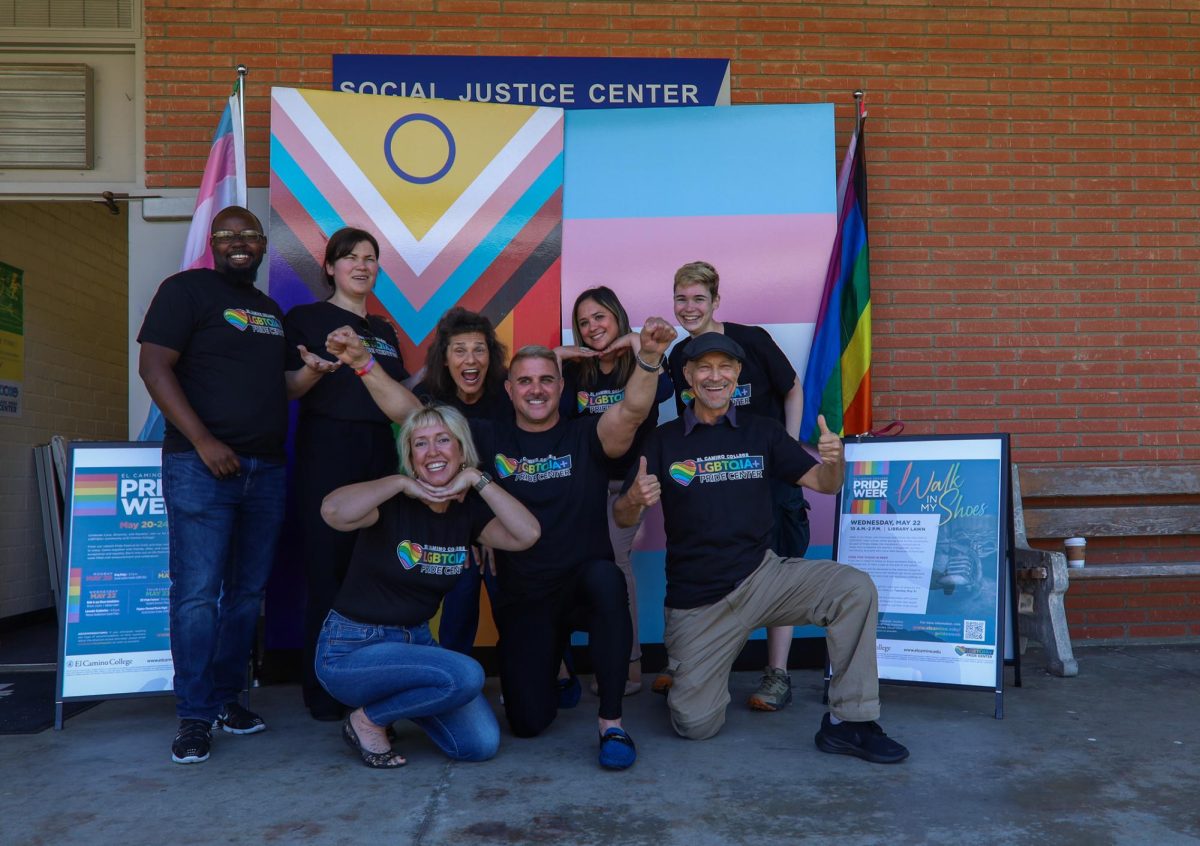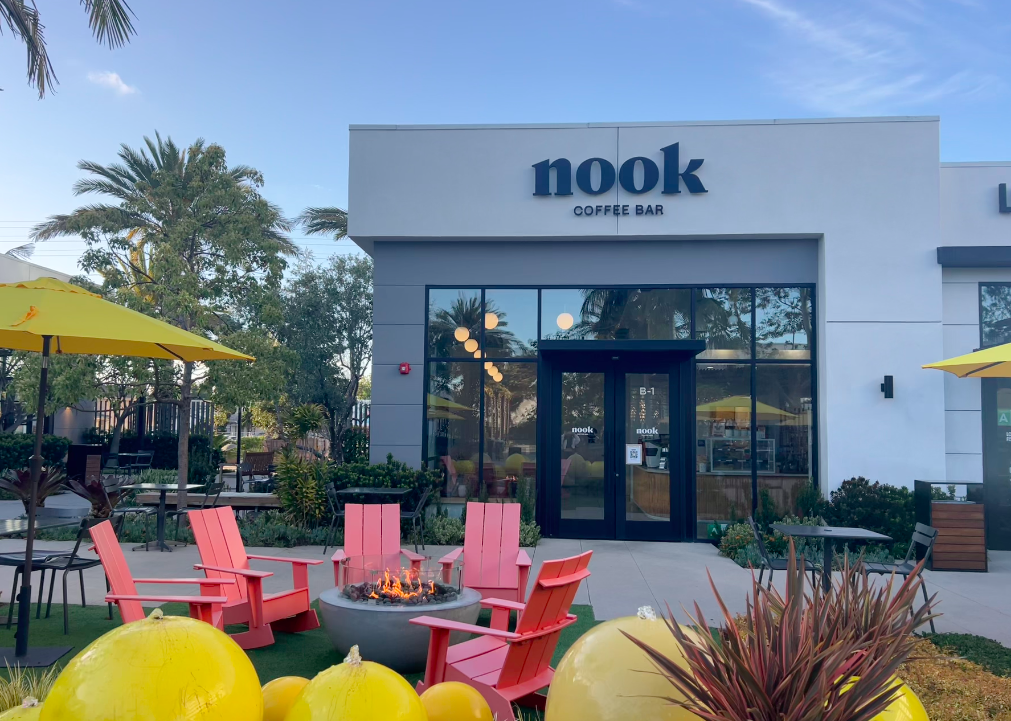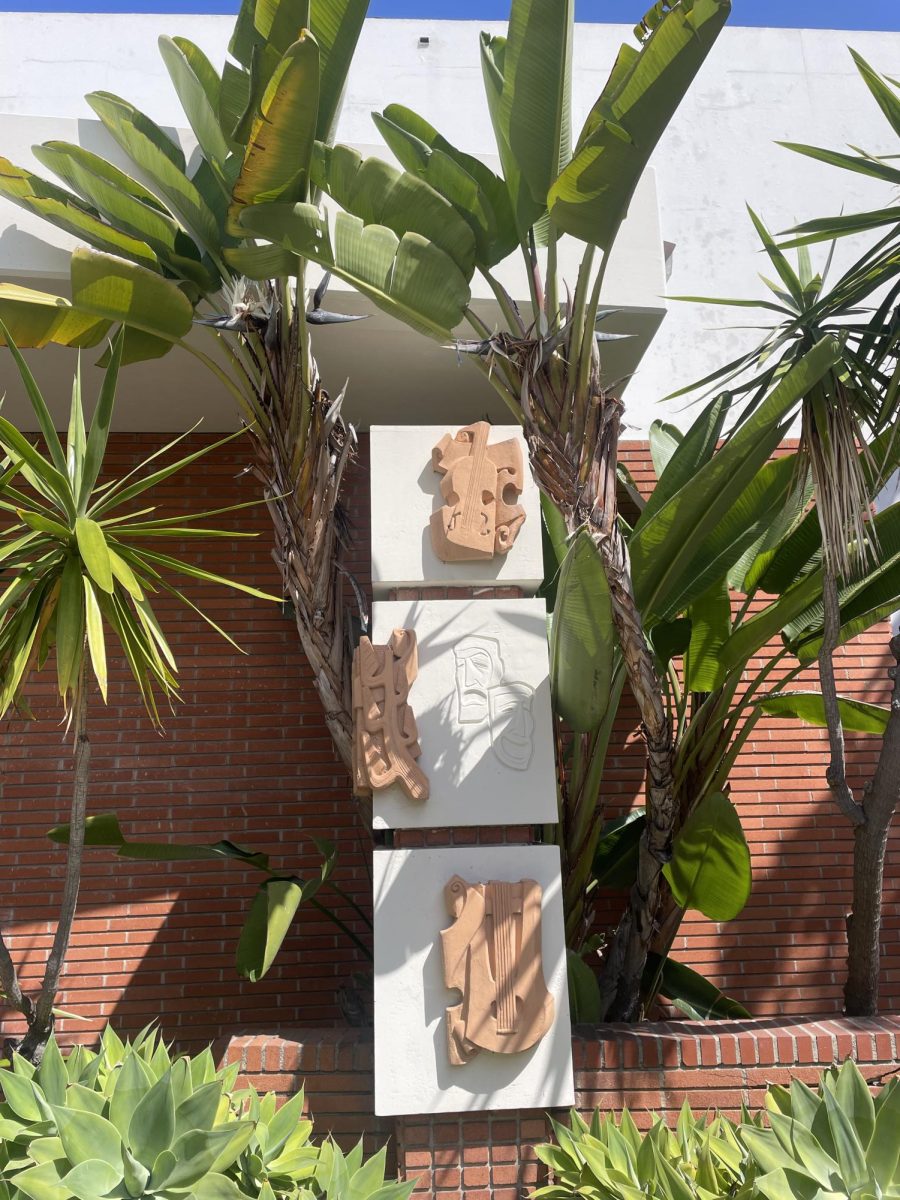Reuben Jacobs is running late again.
With a bag of takeout in one hand and his phone in the other, he ascends the steps to the second floor of the Information and Technology Building before rushing to Room 202.
“Late again, professor Jacobs!” someone yells behind his back, followed by a few laughs, including his own.
Another student dribbling a comically small basketball passes it to Jacobs, who fakes a slam dunk.
“I was the original Steph Curry,” he boasts before passing the ball back.
Pleasantries out of the way, Jacobs sets about getting the projector going.
The bulb’s dim light slowly projects the El Camino College Architecture Club logo.
It is here that Jacobs starts with making a difference.
After five years teaching computer-aided drafting at ECC, he aims to give his students a university-based education as the club adviser, professor, etc., all while balancing his architecture projects.
Jacobs, 59, discovered his passion for architecture at a young age after witnessing his father pursue it as a career.
His father, a military veteran, picked up the hobby of building intricate plane and train models.
That hobby manifested into an interest in building design, which his father pursued after receiving total disability, which he used to fund his architecture and urban planning degree.
“I got to see that firsthand, and it was life-changing,” Jacobs said. “I knew what architecture was about. All of a sudden, home was where it was getting done, so from then on, I knew that’s what I wanted to do.”
Jacobs saw his future in the architectural magazines and sketches spread across his dining room table.
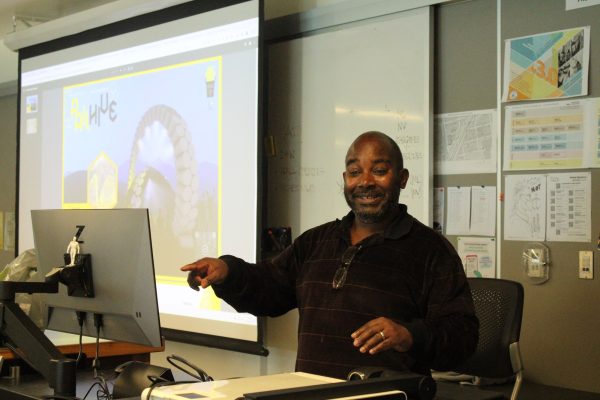
His father managed to turn their Brooklyn apartment into an architectural haven.
Now, entering his 31st year of teaching, Jacobs is taking all he has learned to help inspire the next generation of architects.
His desire to teach at community colleges was made after he spent five years learning computer-aided drafting, which emerged after he graduated from the University of Southern California in the 1990s.
While this is only his fifth year at El Camino College, Jacobs worked previously at Santa Monica and Mount San Antonio Colleges, teaching computer-aided drafting.
Originally from Inglewood, he spent most of his adolescence in Brooklyn, New York, after his parents decided to move in the 1950s.
In his late teens, his family moved back to the West Coast so Jacobs could finish high school and start preparing for college.
The goal was to play college football while also studying architecture, but a high school game injury put that on hold.
He jokes that his mother’s prayers were answered.
In 1999, he started teaching at El Camino but left in 2010 due to scheduling conflicts while working in the architectural field.
He decided to come back after keeping in contact with his colleagues.
“When a position became available, all the way in 2017, I came back long term and I’ve been back since then,” Jacobs said. “Funny enough, as I tell students, you’re always learning.”
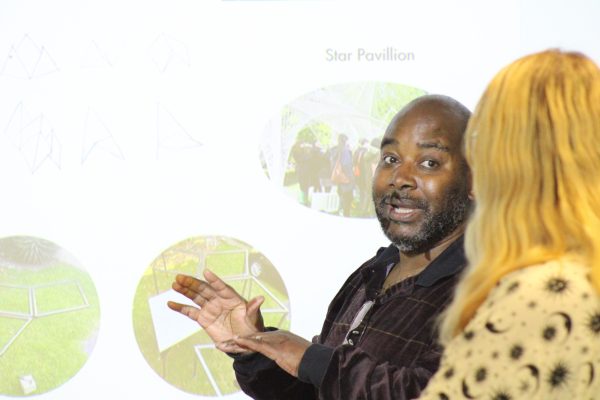
As a Black architect, Jacobs makes up the small pool of Black and African American architects in the U.S.
Each year, the National Council of Architectural Board (NCARB) releases the “NCARB by the Numbers,” a data report that showcases architectural licensure in the U.S.
In 2022, an estimated 121,603 licensed architects were reported, with 9,000 candidates starting the path to their architectural license.
There are only 2,492 Black architects.
Of that, only 566 are Black women.
Jacobs believes this could dramatically change if there is something more to guide students through a rigorous program for the average student.
According to data from the California Community Colleges Chancellor’s Office, El Camino College’s student population is just over 12 percent African-American.
Jacobs is trying to create a connection with students who were once just like him.
“I take education seriously, and I think it’s important that I get my students more prepared than I was even at the community college level,” Jacobs said.
To do this, Jacobs takes every opportunity to provide his students with the resources to advance them in architecture.
Jacobs credits the National Organization of Minority Architects (NOMA) with crucially influencing his early years after graduating from USC.
He emphasizes the value of such organizations in providing support and opportunities for underrepresented architects.
Founded by 12 Black architects, the idea was put in motion after they attended architect conventions similar to those of the American Medical Association and noticed the need for more inclusion in the early 50s and 60s.
“There was really nothing for us,” Jacobs said. “We don’t get that type of work, we’re not celebrated, we’re not included.”
In turn, they devoted themselves to starting their organization, which spanned the country but met once a year in the Bahamas. In 1972, NOMA chapters began to develop and now there are more than 40 chapters across the country.
The world of architecture is broad, so he believes in networking and allowing students to discover if this is what they want to do.
“If you start now and seek out people who do that, you will find out sooner that’s really what you like,” Jacobs said.
The current president of NOMA, Craig Atkinson, echoes the same sentiment.
“If you’re a student, get to know some of the professionals, get to know people, because the most important thing that we are as a professional organization is the most familial organization that you will be part of,” Atkinson said.
After graduating from USC in 1988, Jacobs got his big break a year after working for HOK, one of the most significant global design, architecture, engineering, and planning firms.
From there, he launched his first project, designing high-rise buildings.
A project, he jokes, that never got the opportunity to be built.
“It’s funny. The client was a high-rolling Japanese investor and it was going to be in Vegas,” Jacobs said. “They were building that basically as a goodwill gesture to Vegas because they were trying to get their gambling license to open a Casino.”
Ultimately, the project was scrapped after the license couldn’t be obtained, and the company donated the project and land to the city.
Despite the minor hiccup, in his seven years at HOK, Jacobs had the opportunity to work on many other projects, some with a familiar face.
“I moved into working on doing Disney stores for only about a year,” Jacobs said. “That was when Disney was rolling all those stores out and putting them in every mall all over the place, all over the country, even internationally.
Jacobs’ firm at the time primarily focused on California locations and he helped bring Disney’s vision to life in malls around New Jersey, Iowa and Hawaii.
Some other notable works include the chain restaurants Tony Roma’s, Burger King and the LA County+USC Medical Center along the I-10 freeway, which was rebranded to the Los Angeles Medical Center in May 2023.
Based in Inglewood, Jacobs now runs his residential design firm, Modern Designs Unlimited, specializing in home additions and accessory dwelling units.
Back on campus, Jacobs spends his Tuesday afternoons as the faculty adviser for the El Camino Architecture Club, urging his students to get involved with the program.
“There’s no requirement that you join NOMA, but I try and show students the advantage of being involved in that,” Jacobs said.
This isn’t the first initiative that Jacobs has spearheaded to get his students more involved.
In 2021, he initiated the ECC Architecture Program Guest Speaker Series, inviting industry professionals, including architects, landscape architects, urban designers, project managers, and interior designers, to speak on various topics.
The influence of these students is already making an appearance on campus.
Getting to Zero: Architecture minus Carbon includes the work of the Architecture Department Students at the Art Gallery on campus.
The exhibition and event series center around decarbonization within the design and building industries.
Students designed sustainable strategies to generate minimal or zero carbon and waste in a world where construction and operations of buildings account for nearly 40% of the total carbon emissions.
In class, Jacobs is not without a smile or a laugh.
While critiquing students’ work, he ensures that he is reassuring and encouraging and that his students walk away with positive feedback.
Something that doesn’t go unnoticed by vice president and treasurer of the Architecture Club, Michael Lambert.
Lambert, 31, found interest in architecture after discovering the Netflix series “The World’s Most Extraordinary Homes” while on deployment.
He admires Jacob’s enthusiasm, knowledge and willingness to provide guidance.
“He’s the happiest person around,” Lambert said. “It’s good energy. He’s very knowledgeable, so it’s a pleasure to learn from him.”
The dedication to his students doesn’t go unnoticed.
On April 24, 2024, Jacobs was honored with the distinguished faculty and staff award for demonstrating the highest commitment to his students, college and profession.
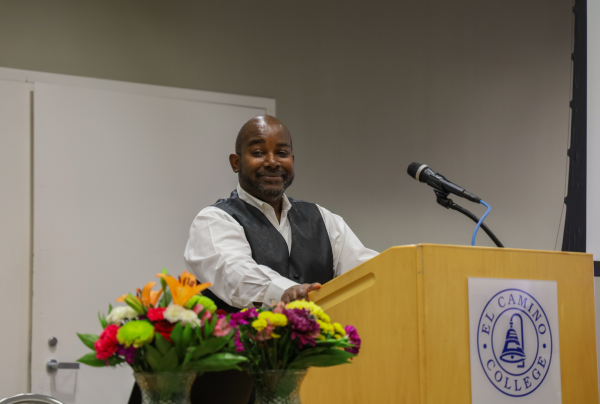
Jacobs stood at the podium in a room filled with colleagues, friends, family and students, sharing his passion for architecture, perseverance and support.
“Architecture is not what I do,” Jacobs said to the crowd. It’s who I am.”
As his speech ended, he was joined by his wife of 32 years, Syeeda.
She embraced him from behind as he started to choke up, thanking his colleagues Dan Richardson and Mark Eber.
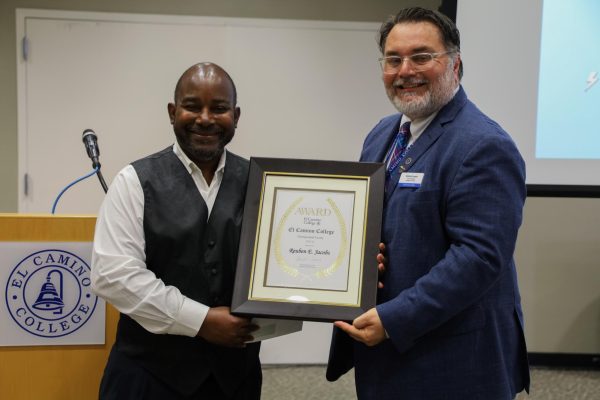
“Without help from people like that, it doesn’t work,” Jacobs said.
Ultimately, he stands firm in his goal for the years ahead.
“We are not a community college education,” Jacobs said. “We are a university that gets people out in two years and I am determined to make this work like a university.”


